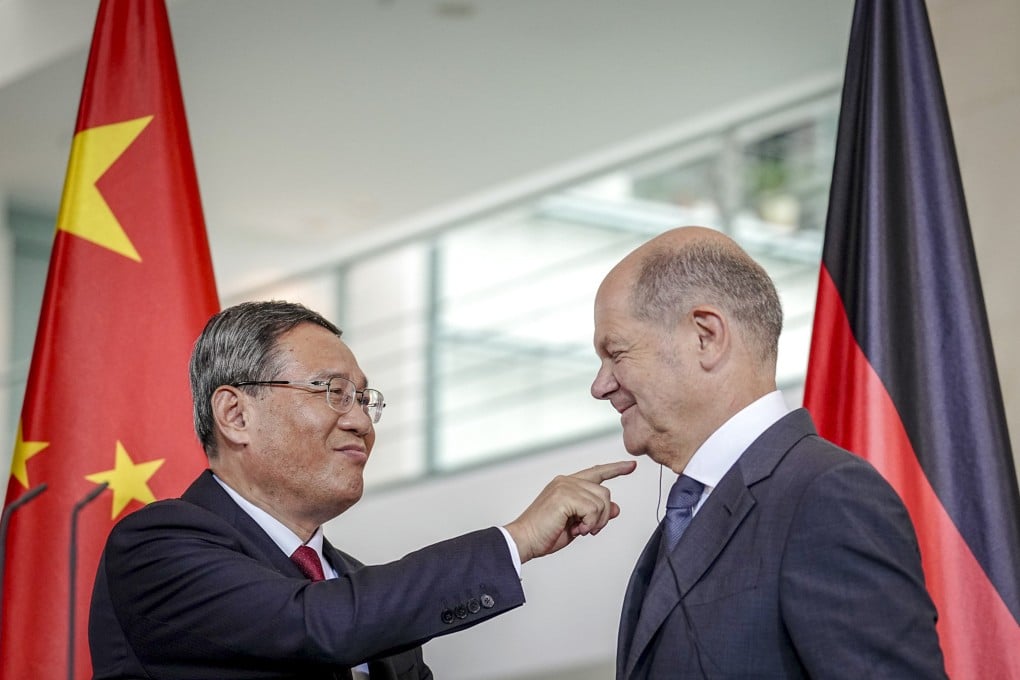Advertisement
Opinion | Despite ‘de-risking’ talk, Germany has not turned away from China
- Two years into Scholz’s government, high-level dialogue has continued with Beijing and German businesses are still making long-term investments in China
- If Scholz hopes to be re-elected in 2025, he needs an economically strong Germany and, for that, he needs China
Reading Time:3 minutes
Why you can trust SCMP
6

Speculation about whether Germany would make a U-turn on China post-Angela Merkel was rampant when Olaf Scholz’s government was sworn in, in December 2021.
Advertisement
Unlike in previous election campaigns, where foreign policy was mostly an afterthought, China emerged as a controversial topic. As a candidate for the German leadership, Annalena Baerbock – now foreign minister – behaved like a quasi-China hawk and demanded a realignment of relations while Scholz remained a wild card for the longest time, with little indication of his stance on ties with Beijing.
The dynamic altered again with Russia’s invasion of Ukraine in February last year. That served to remind Berlin of what could happen if it became too dependent on an essentially rogue state. Since then, parts of the German coalition government have never tired of making clear that China is a rival and that “de-risking” was necessary.
Yet, in reality, Berlin has been taking a two-pronged approach to China. On the one hand, there is criticism of China, particularly from the Green Party and Baerbock, partly on ideological grounds and partly to appease Washington and European partners.
On the other hand, there is a sense of business as usual, with Scholz having little or no interest in jeopardising economic relations – and rightfully so.
Advertisement
This became apparent when the government published its highly anticipated China strategy in July – it appeared to be primarily addressed not at Beijing, but to German companies and was seen as a de facto assurance that they would be able to continue doing business with China.

Advertisement
